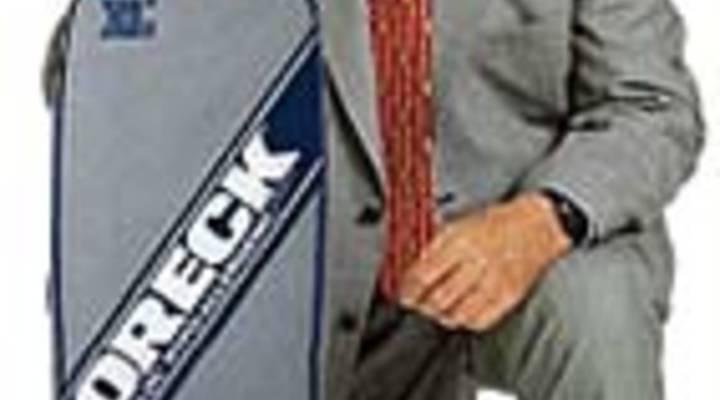
Oreck departure will leave Gulf Coast vacuum
Share Now on:
Oreck departure will leave Gulf Coast vacuum

TESS VIGELAND: We saw an item in the New York Times today that gave us pause. The Oreck Corporation — it make vacuums, among other things — is shutting down its factory in Long Beach, Mississippi.
The plant closed once already in the wake of Hurricane Katrina. It reopened 10 days later, and for almost a year and a half has been helping subsidize its employees’ housing and other needs.
But what it hasn’t been able to do is bring enough workers back to the area to keep the factory going. Workers don’t want to come back because there’s not enough housing. Building codes are making it tough to put new housing in. Insurance rates have skyrocketed.
So Oreck is moving to Tennessee. And that’s got a lot of people mad. We spoke earlier today with Tom Oreck, president of the company and the son of founder David Oreck.
TOM ORECK: After the storm, you know, we did simply what’s right: we brought in food and water and trailers and medical attention and so forth to keep our people going, and cut ’em a paycheck and kept them working. And our intention was to stay on the Gulf Coast in that plant and simply to have a second plant which we were gonna open up to mitigate risk against another potential hurricane. And then, a few months ago, we realized that it was getting increasingly difficult for us to do business on the Coast and came to the conclusion that we really had to relocate entirely.
VIGELAND: And what was the biggest factor in kind of realizing that you weren’t gonna be able to do business?
ORECK: A combination of what was a very difficult cost situation. Insurance rates have gone sky high. I mean, our insurance went up about a million dollars a year on the plant for one-third of the coverage that we had previously, which is not an amount sufficient to protect our assets there. Cost of living has gone up and housing is short, everybody knows that. And as a result of all this, in part, the labor force — which is a good labor force — is just not particularly plentiful. I mean, there’s . . . the people we have are very productive and they’re very good people, but we have about half of the people who were with us pre-Katrina, and it is very difficult to find skilled labor to fill the jobs that we need to fill.
VIGELAND: How do you respond to some of the criticism that’s been leveled at Oreck by city officials who say “You can’t do this to us,” and certainly some of your employees are not happy with what’s going on.
ORECK: It was a very difficult, very painful decision for us. And yet our responsibility is to our employees, it is to our customers and it is to our stakeholders. And we did, or we tried to do, what was right for our people after Katrina, and we continue to do what’s right for our people. And that is both the people there and all around the country where we have other employees. It does not help our people — our employees or our customers — to put ourselves in a position with the businesses at risk. We have fulfilled every commitment that we’ve ever had with any of the state or local agencies. We have been a good corporate citizen all through the 10 years we’ve been on the Gulf Coast, and we’re trying to do what’s right for our people as we leave. But it really isn’t up to us to try and correct the larger problems of the Gulf Coast. And so I think that to say that we should be staying sort of flies in the face of good business.
VIGELAND: Well, you are certainly one of the larger companies that’s facing this problem. What’s it going to take for businesses to be able to survive in Mississippi, in Alabama, in all these places that were just devastated by Hurricane Katrina?
ORECK: It’s gonna take political leadership, understanding what their responsibility is to the region. It’s going to take them dealing with the tough questions of insurance, really dealing with that issue — that is to say so that you can get insurance. Many people can’t get it, it’s too expensive. It’s going to take serious attention to housing. They’re going to have to take responsibility for getting the infrastructure healthy. They all require attention. It is not a short-term thing. And there’s got to be a very serious long-term commitment. And we’ve got to have the intestinal fortitude to stay on getting those things right. It can’t be done unless there is a political will to get it done.
VIGELAND: Alright. Tom Oreck is president of the Oreck Corporation. Thanks so much for taking some time to speak with us today.
ORECK: My pleasure.
VIGELAND: And Oreck’s corporate headquarters will remain in New Orleans.
There’s a lot happening in the world. Through it all, Marketplace is here for you.
You rely on Marketplace to break down the world’s events and tell you how it affects you in a fact-based, approachable way. We rely on your financial support to keep making that possible.
Your donation today powers the independent journalism that you rely on. For just $5/month, you can help sustain Marketplace so we can keep reporting on the things that matter to you.


















